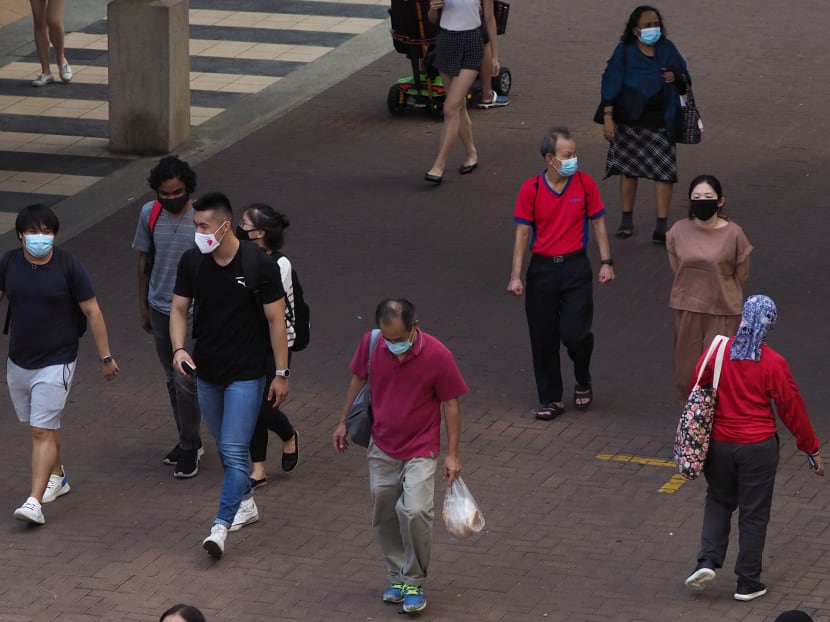‘No silver bullet’: Nimble, evidence-based approach to deal with new Covid-19 variants, says Lawrence Wong
SINGAPORE — There is no single silver bullet that can protect Singapore from new variants of the coronavirus causing Covid-19, so Singapore has to stay nimble and rely on the latest data to adjust its safety measures quickly each time the virus mutates, Finance Minister Lawrence Wong said.

Finance Minister Lawrence Wong, co-chair of the national Covid-19 task force, said that the Government has put in place what it feels is an appropriate “first series of protection” against a new virus strain causing Covid-19.
- Singapore must stay nimble and rely on latest data to adjust Covid-19 measures in the face of new variants, Finance Minister Lawrence Wong said
- For now, the Government has put in place an appropriate “first series of protection”, he added
- Singapore need not completely shut its borders yet given how little is known about the Omicron variant so far
- More steps may be taken if more information comes in about the new variant or health situation in other countries
SINGAPORE — There is no single silver bullet that can protect Singapore from new variants of the coronavirus causing Covid-19, so Singapore has to stay nimble and rely on the latest data to adjust its safety measures quickly each time the virus mutates, Finance Minister Lawrence Wong said.
The Omicron variant, which the World Health Organization labelled a “variant of concern” last week, will also “not be the last variant of concern” that Singapore has to deal with, and so it has to be prepared, he added,
“It simply comes back to the basic point that there is no single silver bullet.
Mr Wong was speaking on Tuesday (Nov 30) during a briefing by the governmental Covid-19 task force, in response to questions from the media about the new Omicron virus strain.
He said: “To address all of these issues, we need to be nimble, we need to adjust quickly based on data, based on evidence, and we need to continually stay on top of the different defences that we have, whether it’s vaccines, testing, therapeutics or basic safe management measures.”
Another mutation down the road may make the coronavirus “far more threatening and far more resistant to the current batch of vaccines”, the co-chair of the task force said.
However, what measures Singapore may take at such junctures remains “the broader uncertainty throughout this pandemic”, he added.
For now, given the little that is known of the Omicron variant so far, Singapore need not completely shut its borders yet.
Mr Wong noted that the Delta variant, which is more transmissible than earlier variants of the virus, had managed to enter even those countries with the strictest border controls, including China and New Zealand.
“In Singapore’s context, we’ve always tried to explain that border measures have to be looked at in the context of the overall system. Border measures cannot stop the virus from coming in, ultimately… what the border measures do is help us buy time.”
He added that each country has to decide on its own appropriate measures. Based on the current situation, the Singapore Government has put in place what it feels is an appropriate “first series of protection”.
These include enhancing testing measures for travellers, such as having extra tests for people entering Singapore through the vaccinated travel lanes.
More steps may be taken as more information comes in about the Omicron variant, as well as the health situation in other countries.
He added that Singapore is not concerned about potential reactions from other countries about its border measures and that the priority is to put in place “sensible and right measures” to keep the community safe.
“That has always been the guiding priority throughout the pandemic. Our decisions and our measures have always been based on data, evidence and science and will continue to be so.”








